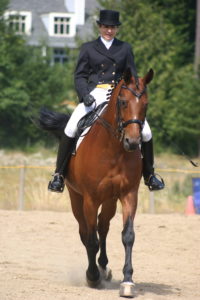The Senior Horse – Fall ’22
- This course closed on 10/24/2022.
Caring for the Senior Horse
Welcome to Equine Guelph’s Senior Horse course! This Equine Guelph short online course will cover everything to do with senior horse care. This course will be divided into 10 units that can be completed at your own pace over the course period. At the end of each unit there are some learning activities that can help you review that material. You should expect to spend about 10-15 hours on this course.
Throughout this course there will be readings, links to more resources, videos and interactive activities. We have also included interviews with senior horse owners since we can often learn a lot from each other’s experiences.
Since this introductory course is designed for personal development and not for credit, you will be given a certificate of completion from Equine Guelph if you complete all the required activities.
Equine Guelph thanks Madeline Boast, Brittany Booth and Bryana Bou-Zaid (Equine degree students) for their contributions to this course!
- Introduction to the course
- Defining a senior horse
- Teeth, body condition and thermoregulation
- Nutrition
- Lameness
- Biosecurity and Vaccinations
- Breeding
- Housing and Fire Safety
- End of Life
- Summary and Continuing Education
- Understand how to define a senior horse
- Describe the changes related to aging in horses (e.g. teeth, body condition, thermoregulation)
- Discuss some appropriate nutritional approaches for senior horses
- Explain what might cause lameness in a senior horse and what lameness looks like
- Understand what biosecurity is, why it’s important, and the basics of developing a biosecurity plan
- Understand what might be involved with breeding senior horses (e.g. risks, procedures and costs)
- List Management Recommendations and Minimum Requirements for housing the senior horse, and important tips for fire safety
- Describe how to evaluate a horse’s quality of life and create an end of life plan
Time Commitment
- Occurs over a 2-week period
- 5-10 hour time commitment is required during this period
- No set times to be online each week
- Recommended you visit the course site at least 5 times a week, preferably once or more each day
Materials
- All materials are provided online within course site
Prerequisites
- 16 years of age or older
Certificate of Completion Upon successful completion of the course, you will receive a Certificate of Completion from Equine Guelph – the horse owner’s Centre at the University of Guelph.
Continuing Education Credits/Professional Development:
- Equestrian Canada recognizes Equine Guelph short-training online courses as qualifying for points on the NCCP Coach/Instructor Professional Development Activities Updating hours (3 points)
 Dr. Bettina Bobsien
Dr. Bettina Bobsien
Dr. Bobsien is a Vancouver Island-based veterinarian with a lifelong passion for both animal care and animal welfare. She works with both the BCSPCA and Humane Canada on a variety of animal welfare issues, from shelter design and management, to policy development and animal care concerns.
Dr. Bobsien is currently the chair of the CVMA Animal Welfare Committee, chair of The Equestrian Canada Health and Welfare Committee, and the veterinary ethics editor for the Canadian Veterinary Journal. She actively advocates for horses that are “unwanted” or at the end of their careers by engaging in public education on the matter. She volunteers with hands-on projects including providing aid to horses and veterinarians in Cuba, and providing health care and first aid courses for horse owners. She continues to practice part-time on Vancouver and Galiano Islands, with a practice focus on performance horses, nutrition, geriatric horse care, podiatry, and equine endocrine diseases.
Eligible Partner Discounts:
Course discounts available to members of the following equine organizations: (Note: Discounts cannot be applied to the Emergency Preparedness Certificate promotional offer.)
- Canadian Therapeutic Riding Association
- Central Ontario Standardbred Association
- Equine Connection
- Horse Racing Alberta
- Ontario Racing
- Standardbred Canada
- Saddle Up Safely (US)







